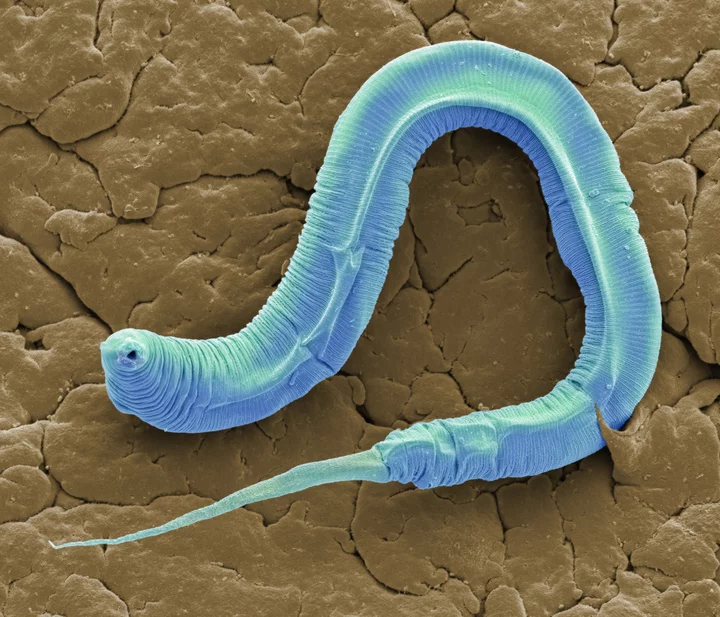In the movie Encino Man, Brendan Fraser plays an ice age caveman who gets frozen, wakes up in Los Angeles in the 90s and learns to love things like burritos and being a party animal. This story has now come as true as it is likely to ever come, because a microscopic worm from Siberia just went through a similar experience.
A paper published Thursday in PLOS Genetics tells an extreme survival story: 46,000 years ago, a member of the species Panagrolaimus kolymaensis was in a gopher hole, and felt it necessary to put herself into a state of suspended animation for whatever reason. She then remained frozen until she was found 130 feet under the surface in a permafrost deposit next to a river. In human terms, this worm slept from the time we were creating the earliest known cave paintings, until just now.
SEE ALSO: These groundbreaking MIT robots were inspired by biological cellsThen she partied. She ate some bacteria from a plate in a lab, reproduced asexually, and died, leaving generations of descendants for biologists to study.
Panagrolaimus kolymaensis is a novel species, either extinct and now resurrected, or simply never classified. Since Panagrolaimus nematodes like this one live in their own niches — like rodent burrows — eating microbes and truly not bothering us humans in any way, we really only encounter them by taking samples of their environment, and looking at them under microscopes. According to the Washington Post, the "vast majority" of nematode species are unclassified.
The paper, by Anastasia Shatilovich of the Russian Academy of Sciences and 14 other authors, notes that this particular worm is a record-crusher. The previous sleep record for a nematode was 39 years. Like another roundworm, Caenorhabditis elegans, this new worm has a preconditioning process that helps it survive when it comes time to enter suspended animation: it allows itself to dry out and secrete a carbohydrate called trehalose.
According to the paper these findings could be quite significant. "Our findings here are important for the understanding of evolutionary processes because generation times could be stretched from days to millennia, and long-term survival of individuals of species can lead to the refoundation of otherwise extinct lineages," the authors write.









